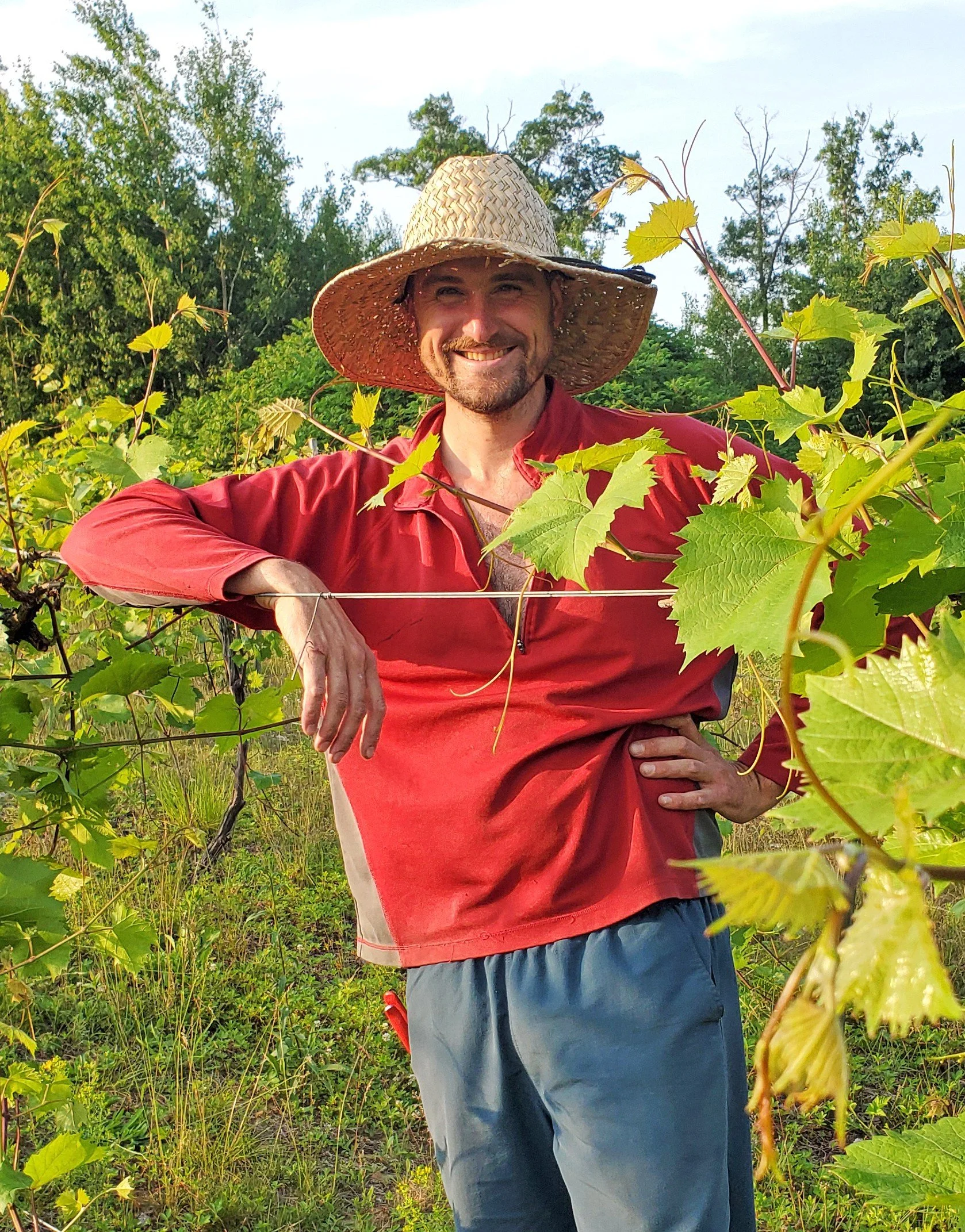Farmer Resilience Grant Stories: NOK Vino
Founder of NOK Vino, Nicholas Kimberly, in the Marquette vines of Concord, NH.
NOK Vino is a small team of farmers who use regenerative farming and minimal intervention at six New Hampshire vineyards. Their hybrid grapevines are better adapted to New Hampshire’s humid summers and frigid winters than the more familiar European grapevines.
Founder Nico Kimberly is driven by a love for plants and the earth. He shares this passion with others, promoting ecological farming practices and fostering a welcoming and inclusive environment within the winemaking community. He believes that ecological agriculture has the power to create positive change, particularly on a local and regional scale. NOK Vino is his contribution to this movement.
Nico applied for emergency disaster relief through NOFA-NH’s Farmer Resilience Fund due to the very high temperature & humidity his vineyards experienced in 2024.
“We had a 35% crop loss due to fungal disease, despite spraying a record amount of organic anti-fungal material,” Nico explains. “The value of the grapes lost, translated into the value of the finished wine was $28,000.”
“New Hampshire has ideal soils for grapes,” he continues. “Vines prefer to grow in rocky, well-drained soil, which New Hampshire has plenty of. They also like hillsides and elevations over 500 feet; but the climate has been challenging over the past three summers, which have been wetter than normal.”
“We grow 20 different varieties of hybrid grapevines, including Minnesota hybrids, French-American hybrids, and some experimental hybrids. Sabrevois, Frontenac, Petit Pearl and St. Pepin are among the most disease resistant, with Marquette and La Crescent the least disease resistant. As the less resistant varieties die, we are replanting them with more resistant varieties.”
“We had light to moderate fungus problems in 2022, but big problems in 2023 and 2024.
We’ll probably see more extreme weather with climate change affecting us in unpredictable ways. It’s hard to say if the trend will be towards wetter seasons or oscillate between wet and drought, but this year has already been very wet. Drought conditions are actually ideal for vines, as the lack of humidity prevents fungal disease from taking over.”
“The funds will allow us to retain an employee, which is very important for our disease management efforts. Having extra hands for spraying and diseased leaf removal is critical to staying on top of disease development. This employee also helped with replanting vines killed or damaged by fungal disease, keeping our yields where they need to be for the long-term picture.”
The Farmer Resilience Fund helped Nico replace lost vines with disease resistant types, and hang onto his employees.
“Having well trained employees is very important to the continuity of our business” Nico adds. “The fungal disease is largely dependent on the weather, but having more adapted vines and experienced employees gives us a better chance at mitigating the impacts of the fungal disease pressure.”
To find out more about NOFA-NH’s Farmer Resilience Fund and ways you can support the adaptive and vibrant farmers of NH, visit nofanh.org/giving.
To discover more about NOK VINO, the vineyards they farm, and the inspired wines they create that embody the terroir of the Granite State, visit nokvino.com.

